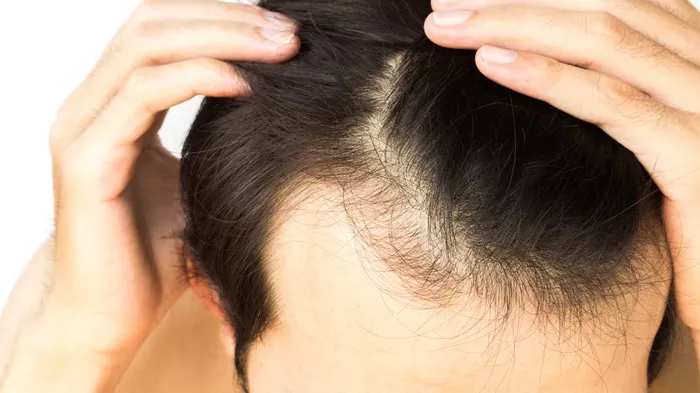Hair loss is a common concern that can affect both men and women, impacting self-esteem and overall well-being. Fortunately, there are various medicinal solutions available that can help control hair loss and stimulate regrowth. In this article, we’ll explore different medications, their mechanisms, and how they can be effectively utilized in the pursuit of healthier and fuller hair.
Understanding the Causes of Hair Loss
Before delving into medicinal solutions, it’s essential to understand the underlying causes of hair loss. Factors such as genetics, hormonal changes, medical conditions, and certain medications can contribute to hair loss. By identifying the root cause, individuals can tailor their approach to effectively address and control hair loss.
Minoxidil: The Gold Standard
Minoxidil is one of the most widely used and recognized medications for controlling hair loss. Originally developed as a treatment for high blood pressure, it was soon discovered to have a side effect – hair growth. Minoxidil is available as a topical solution or foam and is applied directly to the scalp. It is believed to increase blood flow to the hair follicles, stimulate hair growth, and prolong the growth phase of the hair cycle. It is an over-the-counter medication and is considered safe for both men and women.
See Also: [Revealed!] What Vitamins Are Good for Dry Hair?
Finasteride: Targeting Hormonal Factors
Finasteride, an oral medication, is particularly effective for addressing hair loss in men. It works by inhibiting the action of dihydrotestosterone (DHT), a hormone believed to contribute to hair loss in individuals with a genetic predisposition. By reducing DHT levels, finasteride helps to slow down hair loss and promote regrowth. It’s important to note that finasteride is not recommended for use by women, especially those who are pregnant, as it may pose risks to the developing fetus.
Spironolactone: A Hormonal Solution for Women
Spironolactone is an oral medication that has been found effective in addressing hair loss in women. It is often prescribed off-label for this purpose. Spironolactone works by blocking androgens, male hormones that can contribute to hair loss in women. This medication is particularly beneficial for women experiencing androgenetic alopecia or other conditions related to hormonal imbalances.
Corticosteroids for Inflammatory Conditions
In cases where hair loss is associated with inflammatory conditions, corticosteroids can be a valuable medicinal solution. Topical corticosteroids are often prescribed to reduce inflammation and suppress the immune response that may be attacking the hair follicles. In some cases, injections of corticosteroids directly into the scalp may be recommended, especially for conditions like alopecia areata.
Platelet-Rich Plasma (PRP) Therapy
While not a traditional medication, Platelet-Rich Plasma (PRP) therapy has gained popularity as an innovative approach to combat hair loss. In this procedure, a small amount of the patient’s blood is drawn, processed to concentrate the platelets, and then injected into the scalp. Platelets contain growth factors that can stimulate hair follicles, promote hair growth, and improve hair thickness. PRP therapy is often used in conjunction with other treatments for enhanced results.
Biotin Supplements for Nutrient Support
Biotin, a B-vitamin, is essential for hair health, and its deficiency can contribute to hair loss. While biotin supplements are not a direct medication for hair loss, they are often recommended as a nutritional supplement to support overall hair health. Biotin is involved in the production of keratin, a protein that forms the structure of hair, nails, and skin. However, it’s crucial to consult with a healthcare professional before starting any supplement regimen.
Ketoconazole Shampoo for Dandruff and Hair Loss
Ketoconazole is an antifungal medication commonly found in medicated shampoos. While primarily used to treat dandruff and scalp conditions, ketoconazole shampoo has also shown potential in reducing hair loss. It is believed to have anti-androgenic properties, meaning it may help counteract the effects of hormones associated with hair loss. Regular use of ketoconazole shampoo may provide both cosmetic and therapeutic benefits for individuals experiencing hair loss.
Consulting a Healthcare Professional
Before embarking on any medicinal treatment for hair loss, it’s crucial to consult with a healthcare professional or a dermatologist. They can assess the underlying cause of hair loss, recommend appropriate treatments, and monitor your progress. Additionally, a healthcare professional can provide guidance on potential side effects and contraindications, ensuring a safe and effective approach to controlling hair loss.
Combining Medications for Optimal Results
In some cases, healthcare professionals may recommend a combination of medications to address different aspects of hair loss. For example, using minoxidil topically alongside an oral medication like finasteride may provide a more comprehensive approach to controlling hair loss. However, it’s essential to follow the prescribed regimen carefully and attend regular follow-up appointments to monitor progress and make any necessary adjustments.
Conclusion
Medicinal solutions for controlling hair loss offer a range of options for individuals seeking to address this common concern. From topical treatments like minoxidil to oral medications such as finasteride and spironolactone, each option targets specific factors contributing to hair loss. However, it’s crucial to approach these medications with guidance from a healthcare professional to ensure safety and efficacy. By understanding the available medicinal solutions and consulting with experts, individuals can take proactive steps toward achieving healthier, fuller, and more vibrant hair.


